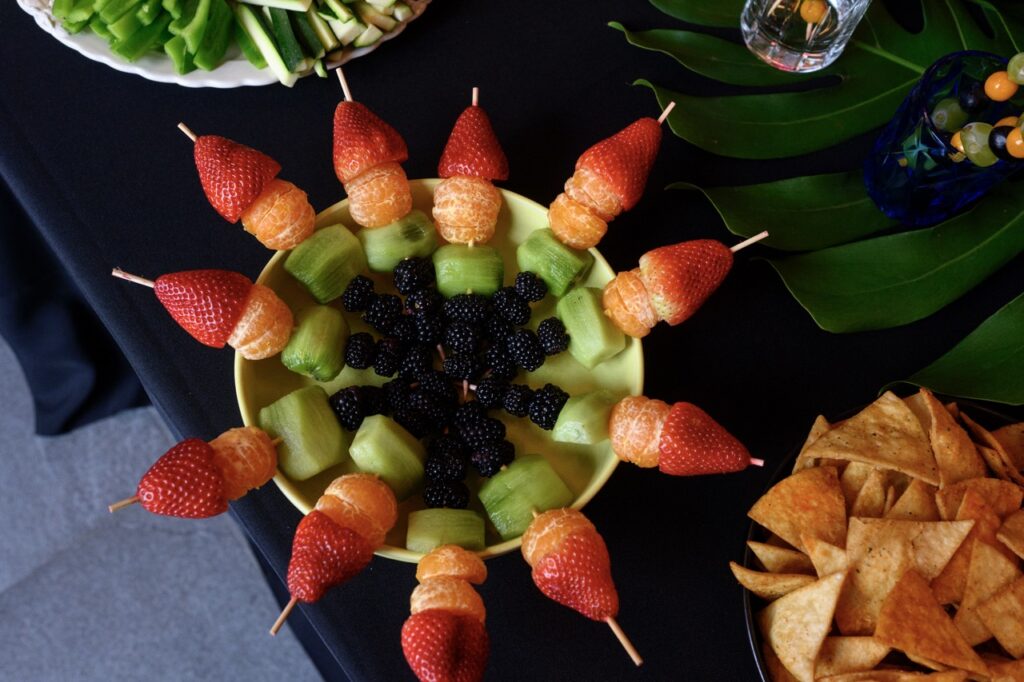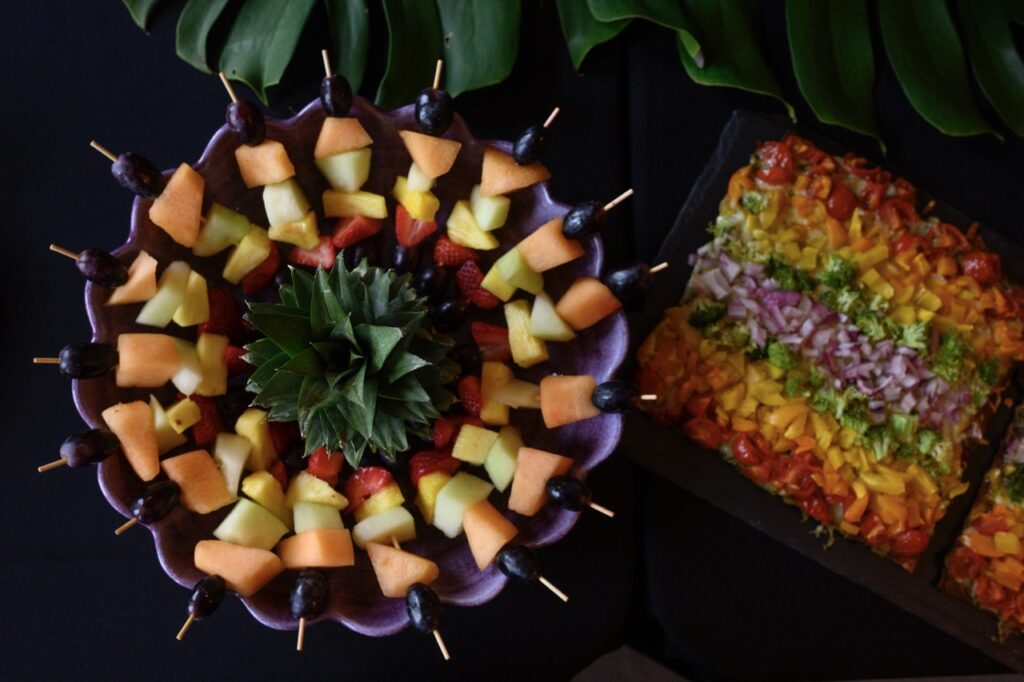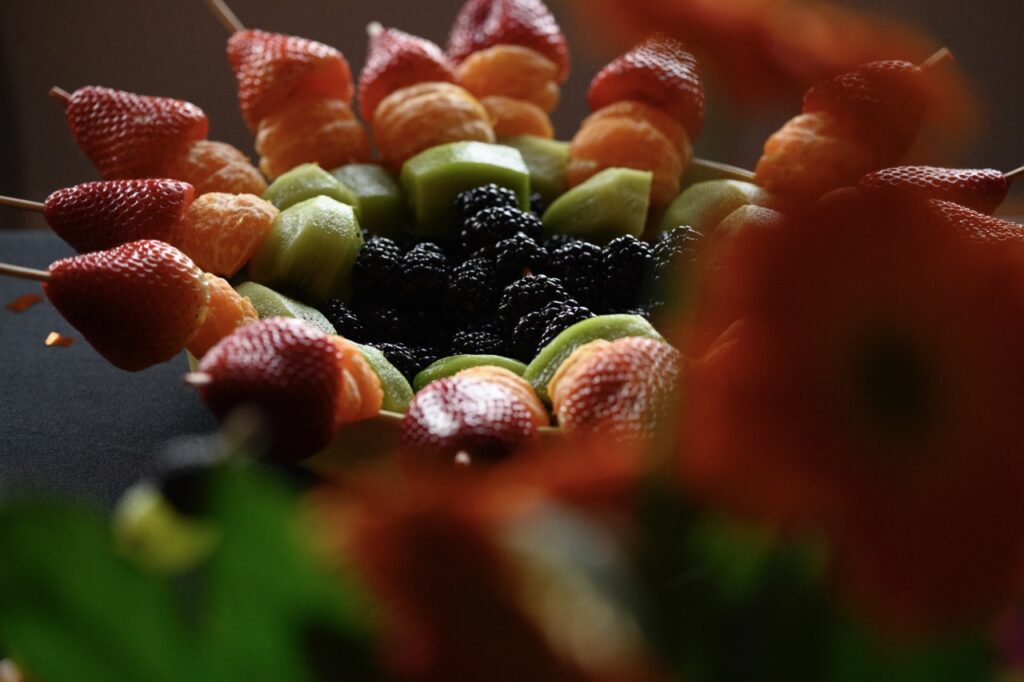If you’re looking to bite into something for Pride Month that’s fresh and makes you feel as good as love does, then building fruit and vegetable skewers may just be your answer. These colorful sticks make great use of your local farmer’s market with easy, simple prep for a delicious snack. You could even serve them beside an array of dipping sauces for a little extra elegance. No matter how you choose to serve your skewers, we have five tips to get you started on making the finest fruit and vegetable skewers for any gathering.
Fruit and Vegetable Skewer Tips

Should You Soak Your Skewers?
Prepping your wooden skewers might involve a soak, though it’s not mandatory…and only necessary if you’re planning to grill them. Soaking for 30 minutes to an hour helps to prevent them from burning on the grill. Metal skewers are always a good alternative if you don’t want to deal with soaking at all.

Fruit and Vegetable Variety
Colorful fruits and vegetables have an undeniable visual appeal, and since we eat first with our eyes, that’s a plus. When you’re thinking about what products to use, it’s important to think past the visual factor. Pairing soft and juicy fruits like peaches or mangoes with the satisfying crunch of bell peppers or zucchini makes for a variety of textures that complement each other well. Taking advantage of what fruits and vegetables are in season is another easy way to cut down your list of choices and pick the right bites for you.

Types of Cuts
Keep it chunky! Two-bite pieces of tender fruits and vegetables like watermelon, kiwis, and tomatoes allow for a greater range of flavors per spear. This way you don’t have guests walking around with mouthfuls that they cannot handle. There are also some products you’ll want to leave whole like cherry tomatoes, berries, and some mushrooms. These will also come in handy when stacking so you have a secure, sturdy start and end to your skewer.
Make Use of Meats, Cheeses, and Beyond
Don’t be afraid to get creative with flavor combinations. Thread salty prosciutto with sweet melon chunks for a delightful contrast. Or, make a mediterranean inspired skewer with Kalamata olives, cherry tomatoes, and cubes of feta cheese. You can even consider adding cubes of firm tofu or tempeh for a plant-based protein option and extra texture. Though, we do recommend being extra careful when adding chunks of cheese or small pieces of meat as these can easily tear and fall apart.

Add a Dip
No skewer is complete without a delicious dip available. For fruit skewers, a light and creamy dip adds sweetness without overpowering the fresh fruit. Simply whip plain yogurt with a touch of honey, whipped cream, vanilla extract, or a squeeze of citrus for a refreshing base. We’re partial to this yogurt-based recipe for Easy Fruit Dip! If you prefer a richer dip, try using mascarpone cheese or caramel.
For your vegetable skewers, provide a classic hummus, which could be flavored with roasted red peppers or herbs. You might try our deliciously unusual recipe for Edamame and Kale Hummus! Or, delight in the tang of chimichurri sauce with its blend of fresh herbs and garlic. But, if all else fails, guacamole is another traditional green dip to add a creamy and flavorful element.
Skewers and Styling by Keith Recker / Story by Kylie Thomas / Photography by Jeff Swensen
 Subscribe to TABLE Magazine‘s print edition.
Subscribe to TABLE Magazine‘s print edition.
